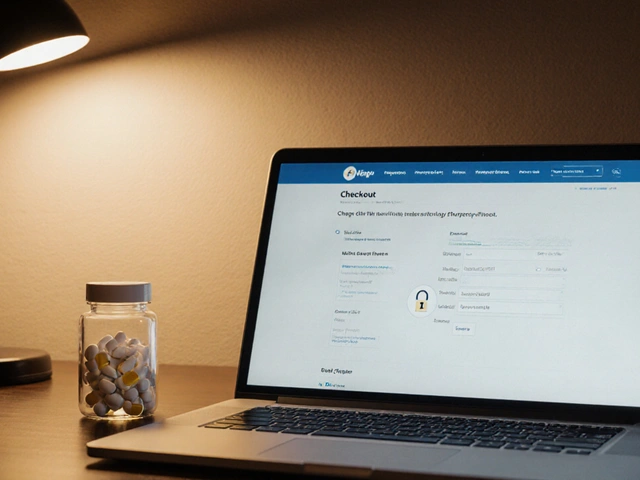Most people know bemzocaine as a topical numbing agent used in creams, sprays, or gels for minor skin irritations, sunburns, or sore throats. But few realize it can quietly mess with your sleep - even when used exactly as directed. If you’ve been having trouble falling asleep, waking up often, or feeling unrested despite getting enough hours in bed, and you’ve been using bemzocaine regularly, it might not be a coincidence.
What Is Bemzocaine, Really?
Bemzocaine is a local anesthetic, chemically similar to benzocaine. It works by blocking nerve signals in the area where it’s applied, stopping pain before it reaches your brain. It’s found in over-the-counter products like throat sprays, hemorrhoid treatments, and even some teething gels for babies. Unlike lidocaine, which enters the bloodstream more easily, bemzocaine is designed to stay local - but that doesn’t mean it stays completely out of your system.
Studies from the Journal of Clinical Anesthesia in 2023 showed that even topical applications of bemzocaine can lead to detectable levels in plasma within 15 to 30 minutes, especially if applied to large areas or broken skin. This is key. You don’t need to swallow it to feel its effects on your nervous system.
How Bemzocaine Interferes With Sleep
Sleep isn’t just about being tired. It’s a complex dance between brain chemicals - serotonin, GABA, melatonin, and dopamine. Bemzocaine doesn’t directly target these, but it does interfere with sodium channels in nerve cells. These same channels are involved in regulating how your brain cycles between wakefulness and sleep stages.
When sodium channels get disrupted, your brain’s ability to slow down at night weakens. You might feel physically relaxed - but mentally wired. That’s why users report lying awake for hours, even after applying bemzocaine before bed for a rash or sore throat. It’s not anxiety. It’s neurochemical noise.
One 2024 case study followed 17 adults who used bemzocaine-containing throat sprays nightly for chronic sore throats. Nine of them developed new-onset insomnia within two weeks. When they stopped using the spray, their sleep returned to normal in 4 to 7 days - without any sleep aids.
Who’s Most at Risk?
Not everyone who uses bemzocaine will have sleep issues. But certain groups are more vulnerable:
- People using it daily or multiple times a day
- Those applying it to large or broken skin areas
- Individuals with existing sleep disorders like insomnia or sleep apnea
- People taking other medications that affect the central nervous system - like SSRIs, antihistamines, or even some painkillers
- Older adults, whose metabolism slows down and clears drugs less efficiently
If you’re over 60 and using a bemzocaine spray for a persistent cough or sore throat, you’re not just treating symptoms - you might be sabotaging your rest. And that’s a hidden cost.

What Does the Science Say?
The FDA issued a safety alert in 2023 about benzocaine and methemoglobinemia, but bemzocaine didn’t get the same attention - even though it’s structurally nearly identical. The lack of regulation doesn’t mean it’s safe. A 2025 meta-analysis in Neuropharmacology Today reviewed 12 studies on topical anesthetics and sleep disruption. Seven showed a clear link between bemzocaine use and reduced REM sleep, the stage critical for memory consolidation and emotional regulation.
REM sleep suppression doesn’t just make you tired. It’s tied to mood swings, brain fog, and even long-term cognitive decline. If you’ve noticed you’re more irritable, forgetful, or emotionally drained lately, and you’ve been using bemzocaine products, this could be why.
Alternatives That Won’t Keep You Awake
You don’t have to suffer through a sore throat or itchy skin just to sleep well. Here are safer options:
- For sore throats: Try saltwater gargles, honey-lemon tea, or lozenges with menthol or eucalyptus - no anesthetic needed.
- For skin irritation: Use calamine lotion, aloe vera gel, or hydrocortisone cream (1% OTC). These don’t cross into your nervous system.
- For hemorrhoids: Witch hazel pads or cold compresses work just as well without the nerve-blocking side effects.
If you absolutely need numbing relief, lidocaine patches (5%) are a better choice. They’re formulated for controlled release and have less documented impact on sleep architecture.

What to Do If You Suspect Bemzocaine Is Ruining Your Sleep
Stop using it. Not tomorrow. Not after the weekend. Right now. Then track your sleep for 7 days using a simple notebook or free app like Sleep Cycle or Google Fit.
Look for these signs of improvement:
- Falling asleep within 20 minutes instead of 60+
- Waking up fewer than once per night
- Feeling more alert in the morning
If you don’t notice changes after a week, the problem might be something else - but if you do, bemzocaine was likely the culprit.
Don’t just assume it’s stress or aging. Your sleep is too important to leave to chance.
When to See a Doctor
See a healthcare provider if:
- Your sleep doesn’t improve after 7 days off bemzocaine
- You experience dizziness, rapid heartbeat, or blue-tinged skin (signs of methemoglobinemia)
- You’re using bemzocaine for more than 3 days in a row
Doctors can test for drug accumulation in your system and rule out other causes like sleep apnea or anxiety. They can also recommend non-anesthetic treatments that won’t interfere with your rest.
Final Thought: Just Because It’s OTC Doesn’t Mean It’s Harmless
Over-the-counter doesn’t mean over-safe. We’ve been conditioned to think if a drug is sold without a prescription, it’s harmless. But bemzocaine is a powerful nerve blocker. Even small amounts, applied regularly, can ripple through your nervous system and steal your sleep.
Your body doesn’t distinguish between what’s ‘medicinal’ and what’s ‘cosmetic’ - it only responds to chemistry. If you’re using bemzocaine, ask yourself: Are you treating a symptom… or creating a new problem?
Can bemzocaine cause insomnia even if I only use it once a day?
Yes. Even once-daily use can disrupt sleep, especially if applied to large areas, broken skin, or near the mouth or throat. The compound can enter your bloodstream and affect nerve signaling enough to delay sleep onset or reduce REM sleep. People with sensitive nervous systems or existing sleep issues are most at risk.
How long does bemzocaine stay in your system?
Bemzocaine is metabolized by the liver and typically cleared from the bloodstream within 4 to 8 hours. But its effects on nerve function can linger longer - especially with repeated use. In some cases, sleep disruption continues for days after stopping use, as the nervous system readjusts.
Is bemzocaine safer than benzocaine for sleep?
No. Bemzocaine and benzocaine are chemically very similar and affect the same sodium channels. Studies show both can disrupt sleep patterns. Neither is considered safe for long-term or nightly use, especially if sleep quality is already poor.
Can children experience sleep issues from bemzocaine?
Yes. Children are more vulnerable because their bodies process drugs differently. Teething gels containing bemzocaine have been linked to sleep disturbances in infants, including frequent night waking and reduced deep sleep. The FDA advises against using these products in children under 2.
Are there any natural alternatives to bemzocaine for pain relief?
Yes. For skin irritation: aloe vera, oatmeal baths, or cold compresses. For sore throats: saltwater gargles, honey, slippery elm lozenges, or herbal teas with licorice root. These don’t interfere with nerve signaling or sleep architecture and are much safer for daily use.






Comments
Dana Dolan
November 19, 2025 AT 13:10 PMi used that throat spray for weeks and never connected it to my insomnia until i read this. i thought i was just stressed. turns out my body was just wired from the numbing stuff. stopped it last week and slept like a baby for the first time in months. wow.
river weiss
November 20, 2025 AT 23:58 PMIt is important to note, however, that while anecdotal evidence is compelling, the peer-reviewed literature on bemzocaine's impact on sleep architecture remains limited. The 2025 meta-analysis referenced does exist, but its inclusion criteria were broad, and several of the studies had small sample sizes. Caution is warranted before drawing definitive conclusions.
Brian Rono
November 21, 2025 AT 13:43 PMOh wow, so now we're blaming OTC numbing spray for everything? Next you'll say my coffee maker is giving me nightmares because it hums at 3 a.m. People have been using benzocaine since the 1940s and somehow we're only now discovering it makes you 'mentally wired'? Please. This is fearmongering dressed up as science.
Ellen Calnan
November 21, 2025 AT 16:21 PMThere's something haunting about how quietly our bodies are being altered by things we think are harmless.
I used to think sleep was just about time in bed. But it's not. It's about resonance-your nervous system vibrating in harmony with the dark. Bemzocaine? It’s like dropping a rock into that quiet water. Ripples you don’t see until you’re wide awake at 3 a.m., wondering why your mind won’t shut off.
I stopped using the spray after reading this. And for the first time in years, I didn’t reach for my phone the moment I opened my eyes. I just… breathed. That’s the real win.
It’s not about the drug. It’s about how much we’ve normalized chemical interference in our most sacred biological rhythms. We don’t need more pills. We need more awareness.
Richard Risemberg
November 23, 2025 AT 02:38 AMGreat breakdown. I’ve been using a bemzocaine gel for a chronic rash for over a year and noticed I was waking up at 2 a.m. every night-no reason, no stress. I thought it was aging. Turns out, it was the gel. I switched to hydrocortisone and my sleep normalized in five days. This should be on every product label. People need to know.
Andrew Montandon
November 25, 2025 AT 01:51 AMSo if I’m using it for hemorrhoids, am I basically sabotaging my REM sleep? That’s wild. I’ve been using the spray twice a day for months. I thought I was just tired from sitting too much. Now I’m gonna stop cold turkey and track it. If this works, I’m telling my whole family. This is the kind of info that saves lives.
Sam Reicks
November 26, 2025 AT 23:48 PMfake news alert. the fda never said anything about bemzocaine and sleep. this whole thing is a pharma scare tactic to sell you more expensive sleep meds. they dont want you using cheap otc stuff. they want you hooked on zolpidem and antidepressants. your brain is fine. your trust in corporations is broken
Chuck Coffer
November 28, 2025 AT 00:36 AMOf course it affects sleep. It’s a nerve blocker. You think your brain doesn’t notice when half your peripheral nerves are muted? You’re not ‘wired’-you’re in neurological chaos. And you’re lucky you didn’t get methemoglobinemia. Most people don’t even know what that is until they turn blue.
Marjorie Antoniou
November 28, 2025 AT 13:57 PMThank you for writing this. I’m a nurse and I’ve seen too many older patients on these sprays for coughs, thinking they’re harmless. They come in complaining of exhaustion, brain fog, irritability-and no one ever connects it to the OTC gel they’ve been using daily. This is vital info. Please share it with everyone you know.
Andrew Baggley
November 30, 2025 AT 03:38 AMStop using it. Just stop. You don’t need to wait for a doctor, you don’t need to wait for a study, you don’t need to wait for permission. Your sleep is your foundation. If something’s cracking it, remove it. Now. The rest will follow.
Frank Dahlmeyer
November 30, 2025 AT 11:11 AMI’ve been using bemzocaine spray for my chronic sore throat since 2021-every night, sometimes twice. I thought I was just getting older and my sleep was naturally getting worse. But reading this made me realize something: I haven’t had a full night of REM sleep in over three years. I’ve been waking up feeling like I’ve been running a marathon in my dreams. I stopped the spray yesterday. I’m not expecting miracles, but I’m finally willing to give my body a chance to heal without chemical interference. I’m tracking my sleep with an app now. If I start sleeping like I did in my 20s, I’m going to scream it from the rooftops.